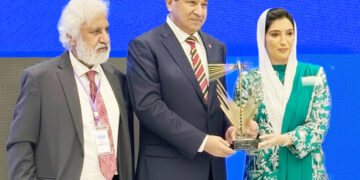Pakistan is in discussions with the International Monetary Fund (IMF) regarding its 24th bailout program, aiming for a substantial financial package to address economic challenges. The negotiations are ongoing amidst concerns over the country’s fiscal stability.
ISLAMABAD: Pakistan finds itself at a critical juncture as it enters into discussions with the International Monetary Fund (IMF) for its 24th bailout program, signaling a significant milestone in the country’s ongoing efforts to address economic challenges and stabilize its financial landscape. The negotiations, led by a mission team from the IMF, underscore the urgency of securing substantial financial assistance to mitigate the impact of Pakistan’s fiscal woes and pave the way for sustainable growth.
In a press briefing, IMF Communication Director Julie Kozack confirmed the commencement of talks with Pakistani authorities on the Extended Fund Facility (EFF), commonly referred to as the ‘longer and larger’ bailout program. While details of the discussions remain under wraps, Kozack hinted at ongoing deliberations aimed at charting the course for future engagement between Pakistan and the global lender.
Highlighting the IMF’s recent engagement with Pakistan, Kozack noted the completion of the second review of the stand-by arrangement, which enabled a disbursement of approximately USD 1.1 billion. She commended Pakistan’s policy efforts, acknowledging their role in stabilizing the economy amidst challenging circumstances.
However, amidst the backdrop of ongoing negotiations, Pakistan faces a slew of economic challenges, necessitating urgent reforms and financial assistance to navigate the turbulent waters ahead. The country is reportedly seeking a bailout package ranging from USD 6 billion to USD 8 billion, spanning a period of three to four years, to address pressing financial concerns and bolster economic resilience.
The IMF’s technical experts’ recent visit to Pakistan signifies the gravity of the situation, with discussions focusing on the formulation of a fresh loan program and budget preparations to steer the country towards financial stability. However, Pakistan’s economic reform agenda faces hurdles, including the failure of a proposed tax amnesty scheme and calls from the IMF to overhaul tax laws and special tax regimes.
As Pakistan braces for the potential implications of the IMF bailout program, tensions simmer over proposed economic reforms and the IMF’s stringent conditions for financial assistance. Calls for tax reforms and amendments to existing laws have sparked controversy, with stakeholders advocating for measures to promote fiscal discipline while addressing socio-economic disparities.
Amidst these challenges, Pakistan’s engagement with the IMF remains pivotal in shaping the country’s economic trajectory and fostering sustainable growth. The outcome of the ongoing negotiations will not only impact Pakistan’s fiscal landscape but also reverberate across regional and global economic spheres, underscoring the significance of concerted efforts towards achieving economic stability and prosperity.



















